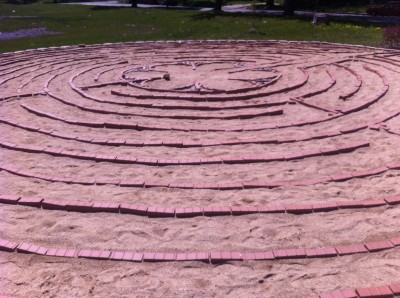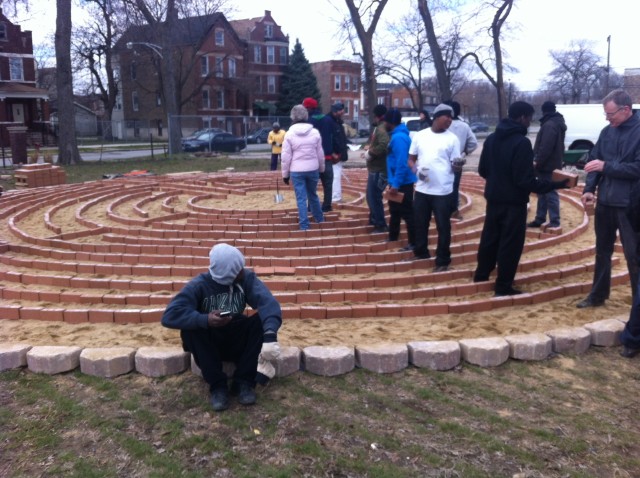If you want to go fast, go alone. If you want to go far, go together.
 In Chicago today, there is a lot of discussion about violence. In particular, there is a lot of discussion about youth violence, about the incredible difficulty of growing up safely in some of our city’s most under resourced areas.
In Chicago today, there is a lot of discussion about violence. In particular, there is a lot of discussion about youth violence, about the incredible difficulty of growing up safely in some of our city’s most under resourced areas.
To our credit, some beautiful solutions have been on the rise. Restorative justice efforts have been gaining steam, dynamic mentoring projects have been getting the spotlight, and an ambitious summer jobs project is underway.
Slowly but surely, Chicago is stepping up. Of course, we are still spending incredible sums of money to lock up black men and women by the tens of thousands every year. And these are typically the same people who were pushed out of school just years – or sometimes weeks – prior.
But, little by little, we are stepping up.
Compared to the era of the 1990’s where youth were seen as ‘super predators,’ public discourse today seems increasingly reasonable. Far from perfect, but increasingly reasonable. More and more people seem to acknowledge that those wreaking havoc may actually have pressing needs of their own.
Rather than just seeing black and brown youth as perpetrators of crime, we are starting to recognize their own heightened vulnerability to violence. On rare and welcome occasions, some public leaders are even starting to acknowledge that there is a link between past exposure to violence and the enactment of future violence.
Of all the violence prevention ideas that have been circulating lately, one of the suggestions that gives me the most hope is also one of the most simple. This is the idea of accompaniment.
 In the youth development context, accompaniment means that an adult will walk hand-in-hand with a young person in need, helping them face whatever obstacles may be in their way.
In the youth development context, accompaniment means that an adult will walk hand-in-hand with a young person in need, helping them face whatever obstacles may be in their way.
If a young person is having difficulty re-enrolling in school, the accompanying adult will be their advocate with the necessary administrators. If they are in need of a safe place to stay, the person accompanying them will help them pursue every possible housing resource available.
The accompanying adult does not solve a young person’s problems for them, but they do help to make sure they have a fair chance when attempting to solve those problems for themselves.
An excellent leader of this practice is the Precious Blood Ministry of Reconciliation (PBMR), based in the Southwest Side neighborhood Back of the Yards. Though open to all, Precious Blood specializes in working with young people involved in the juvenile justice system, running programs in both their own neighborhood headquarters and the Cook County Juvenile Temporary Detention Center.
Because their work engages young people while they are both inside and outside the walls of detention, PBMR has become an incredibly supportive bridge, walking with youth through many of their most difficult moments in adolescence.
Though simple, the idea of accompaniment is far from easy. How many adults are actually willing to walk that road with a young person in need? Of those who are willing, how many have the knowledge and/or supports to do so successfully?
Despite the difficulties, accompanying our youth is one of the practices we most need in Chicago today. The more that adults step up and discover positive ways to get involved in young people’s lives, the less that we will end up fearing those who may live just down the street from us.
And as featured in the pictures of Precious Blood creating a ‘Meditation Labyrinth,’ the work of accompaniment can be filled with tremendous creativity, ritual, and concrete skills training.
Of course, like any real work, supporting a young person through their challenges takes time. And the resources youth need are not always available. But by being willing to take the journey with them, we at least make it clear that we believe their lives are worth the effort.
So if you hear of any cool new programs for youth in my city (or in your own), stop to think about what they are really offering. Are they getting more adults involved in the work of building community? Are they helping to bridge generational divides? Are they ensuring that, slowly by slowly, we remember how to walk together?
Whatever programs or initiatives you encounter, put them through the accompaniment test. Because, who knows, if this trend keeps up, common sense just might make a comeback.


Thank you Father Kelly and all at Precious Blood for “walking together” with our young people.
This is good to hear. Where is the labyrinth located? Who built it?
Great question! The labyrinth is in Chicago’s Back of the Yard neighborhood, it was built by adult and youth leaders at Precious Blood.